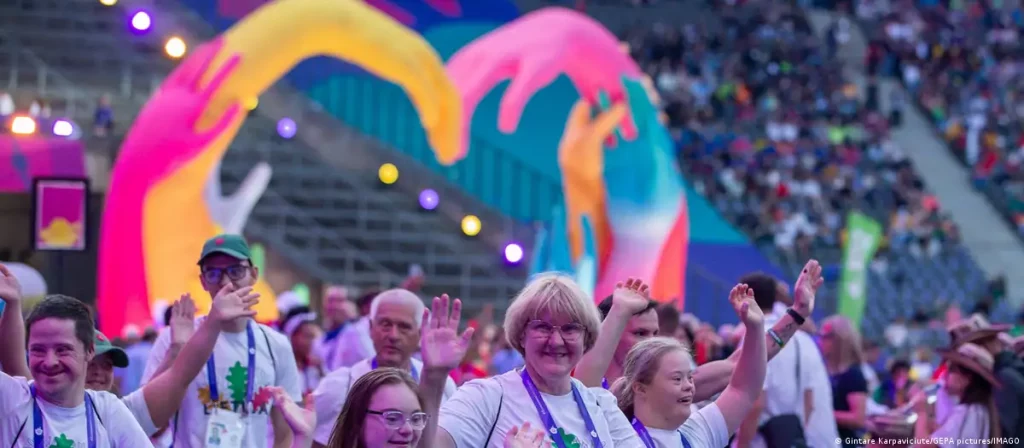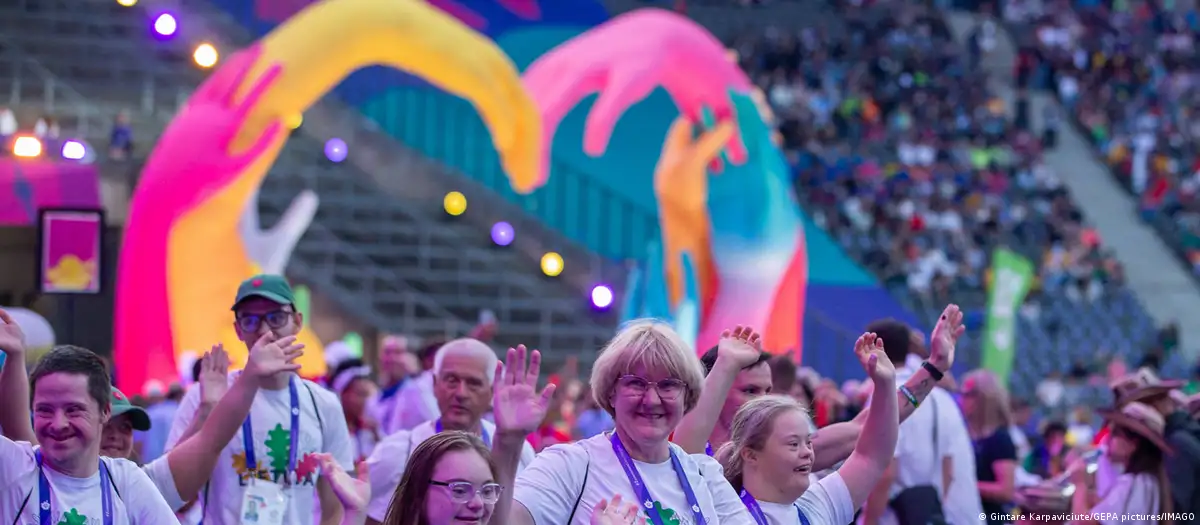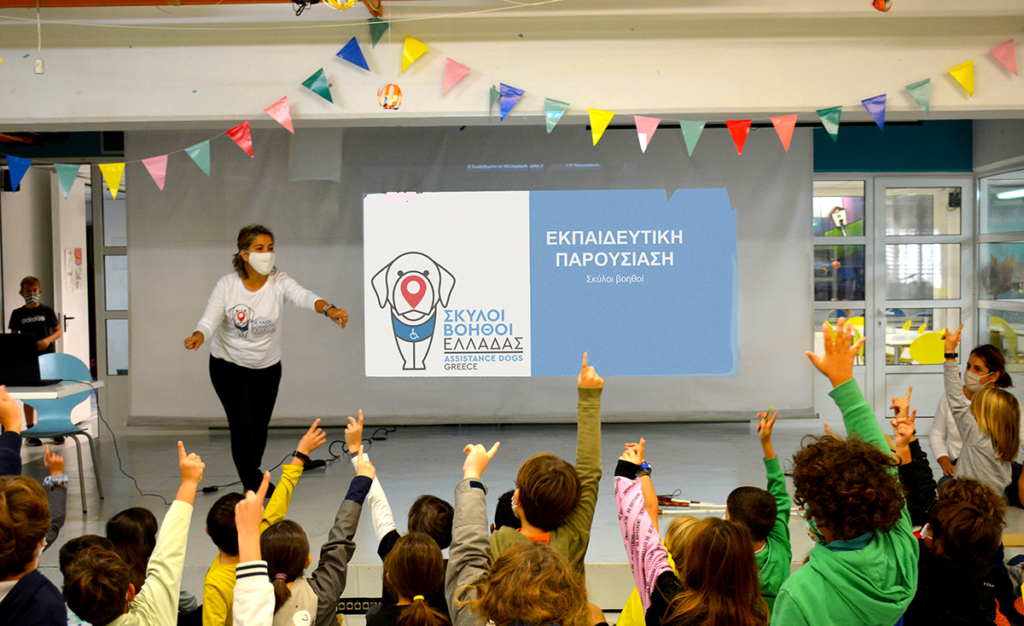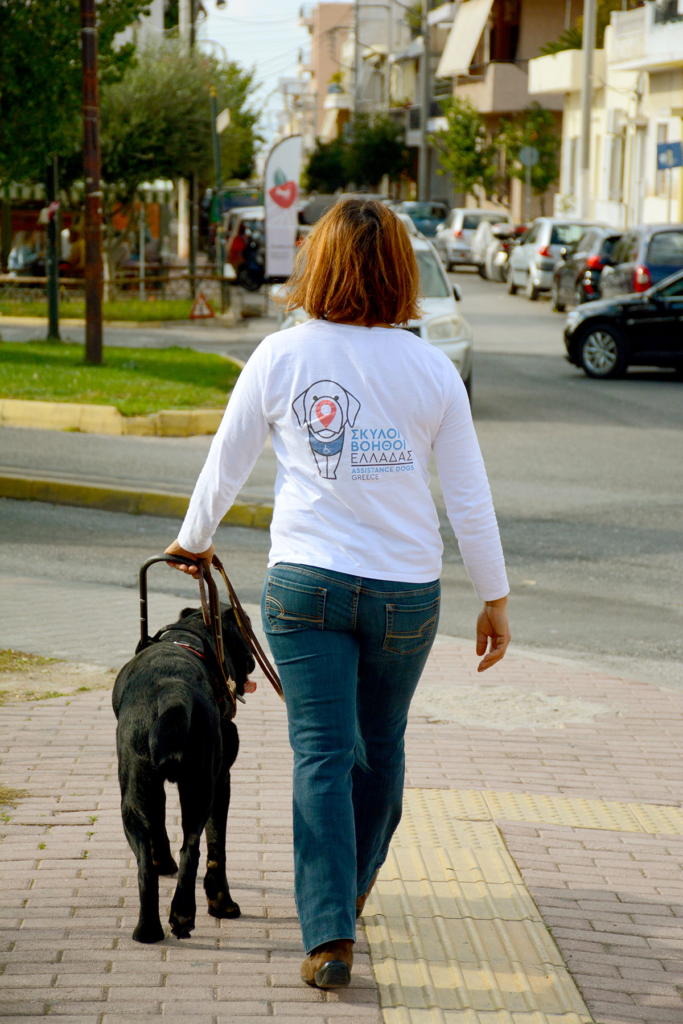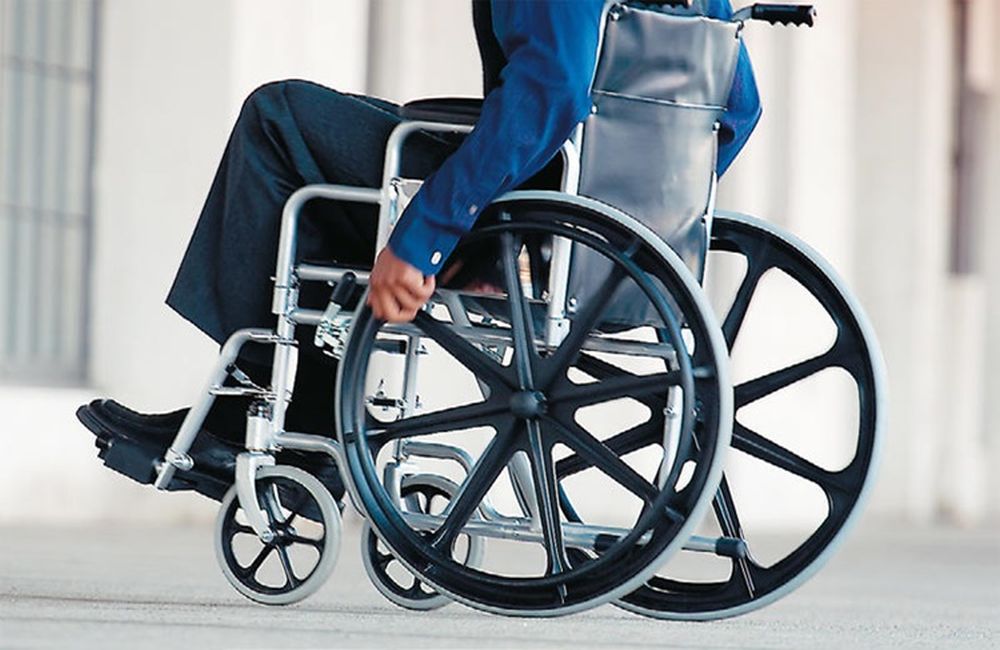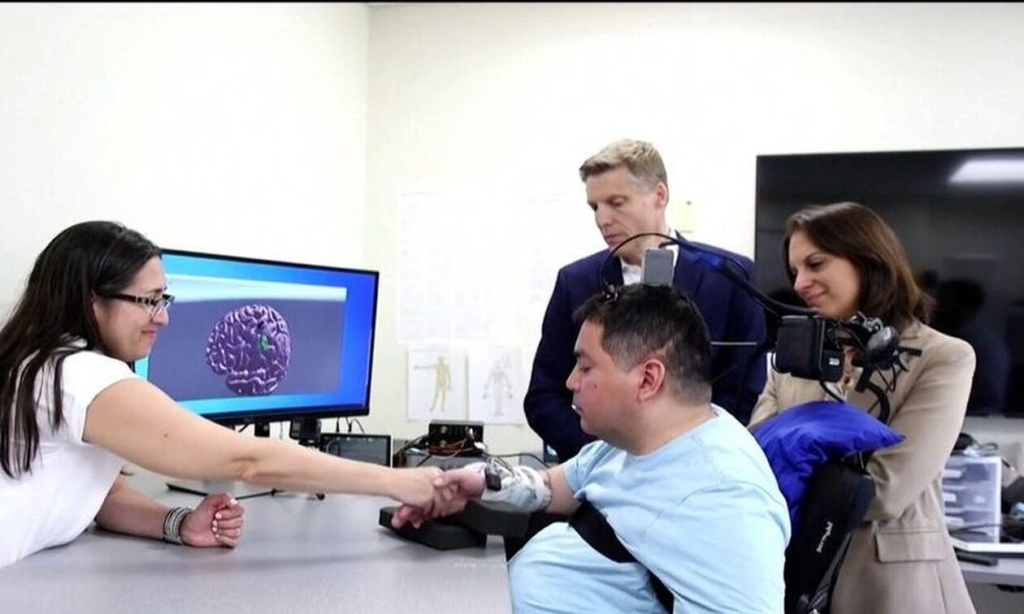
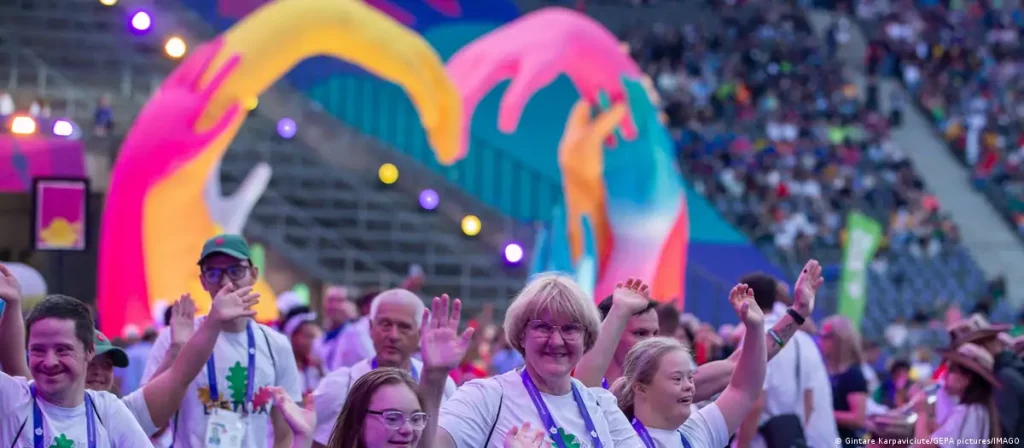
But what is the legacy of these games? Perhaps the visibility, of the participation of people with disabilities in sports, art, and public action without fear and shame. To come forward and draw the spotlight on them. Through visibility and public debate, the realization is that modern society is inherently colorful and polyphonic with equal rights to be afforded to all.
Berlin is a city with a heavy shadow of history. The Olympic Stadium, which gave the impetus for this year’s Special Olympics for athletes with intellectual disabilities, also has its own heavy history. The 1936 Olympics were overshadowed by Hitler’s presence. Olympic ideals had given way to racist and intolerant National Socialist ideology.
Almost 90 years later, the Special Olympics were held last ten days (June 17 to 25) at the same stadium, with 7,000 athletes from 180 countries, approximately 18,000 volunteers, thousands of coaches, staff, family members, 50,000 spectators at the spectacular Opening Ceremony and a total of 300,000 visitors. With the motto “together invincible”, the goal of the Special Olympics was to send a message for more participation, cooperation, understanding, and respect for people with intellectual disabilities.
Impressive and especially with a moving and hopeful presence were the multi-member delegations of Greece and Cyprus, with 71 athletes from Greece and 35 from Cyprus. With admirable successes and dozens of medals in various events: from athletics, swimming, and cycling to basketball, rhythmic and instrumental gymnastics to bowling and bocce. Of course, the medals in the specific competitions are not an end in themselves, because virtually everyone who makes the journey and reaches the international competition field is a winner.
“The road is still long…”
Greece and Cyprus in the Special Olympics
“It was fifteen days full of unique emotions, exceeding our expectations. These global struggles have really contributed to social change through inclusion. They were moments that really brought the world together at a time, like today, when we need it the most,” Special Olympics Cyprus Secretary General Eleni Rossidou tells DW. As he typically says: “We demand the inclusion of our sportsmen and women in society at all levels. Berlin was the opportunity to remind the world that when it comes to inclusion, action must speak louder than words.” For her, however, there is still “a long way to go on a global level” to achieve the goal of fully integrating people with mental disabilities into modern society.
Artemis Vasilikopoulou, national director of Special Olympics Greece, who has participated in Special Olympics since its first steps in Greece, has a similar opinion. “There is still a way to go,” says Ms. Vassilikopoulou to DW. Now, as he explains, an important step has been taken, since May they have been officially recognized as a “federation” and thus can now be financed by the state budget, which facilitates their work. Until now, everything was done with sponsorships and donations from individuals and foundations.
“In the beginning we encountered many problems. But now we have reached a point where everyone knows what Special Olympics is and how important it is to integrate these people through sports in their community, city, region” he says characteristically. The important element in the Greek mission is that many athletes from the Greek province are now participating, who otherwise would not have had these possibilities. “People with disabilities are given the opportunity to live experiences that they would not be able to live otherwise. An athlete from Lefkada entered a plane for the first time”, he tells us characteristically” thanking from the bottom of his heart all the members of the mission for their contribution.
The practical obstacles and the big picture
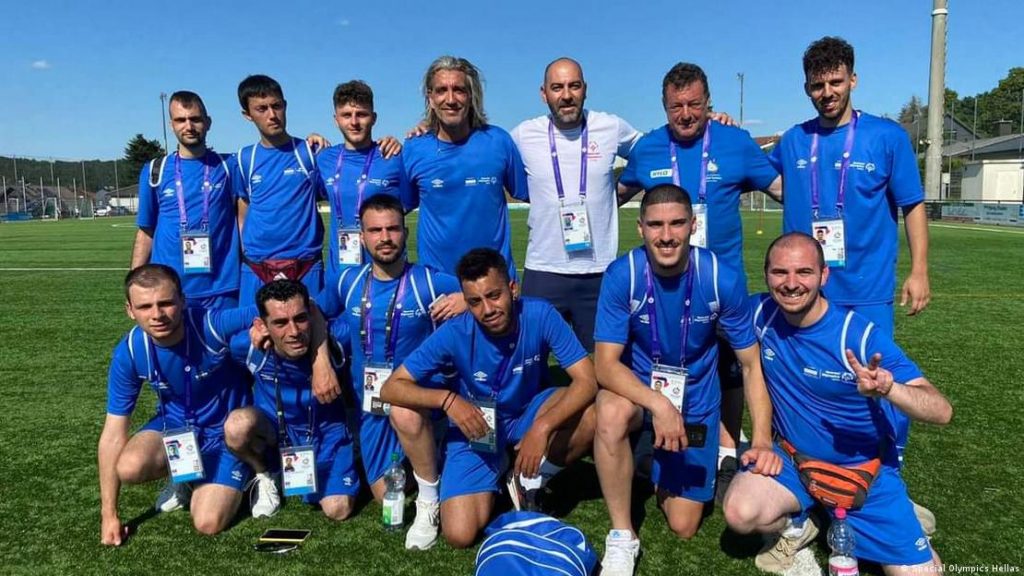
And for the German government the Special Olympics World Games in Berlin were not just a big gamble, but an “absolute priority”. After all, concepts such as “integration” and “inclusion” are often heard both in the German parliament and in the individual German ministries. A “great event” was spoken by Chancellor Olaf Solz, who gave a double “attendance”, at the opening ceremony and at a bowling match. “Participation is almost more important than winning. Few win, but everyone participates and that’s really great,” said Olaf Solz. “Exemplary games, a model for other sporting events as well” were the Berlin Special Olympics and for Christiane Krajewski, president of the German Special Olympics Federation.
But in reality, even in Germany, the numbers are not particularly encouraging in the field of integration and participation. According to official figures only 8% of people with an intellectual disability in Germany have access to sports activities. A rate that is far from the German government’s target for “accessibility” in sports of around 16%. The ideal for Krajewski would one day be for this percentage to rise to 36%, as it also applies to people without an intellectual disability.
However, even in the Special Olympics of the German capital – which notably claims the 2036 Olympic Games – the difficulties and weaknesses for an effective integration of people with disabilities on equal terms emerged in practice. Despite the enthusiasm and dedication of organizers and volunteers, the long distances, the problems of transportation in the city and between the venues of the games – under the mantle of the environmentally friendly ‘Green Games’, the perhaps hasty training of many volunteers but also a abuse scandal within the German team showed that the organization of such sporting events perhaps requires wider preparation, knowledge and proper urban infrastructure. And of course the right people in the right positions.
But what is the legacy of these games? Perhaps the visibility, the participation of people with disabilities in sports, art, public action without fear and shame. To come forward and draw the spotlight on them. And through visibility and public debate, the realization that modern society is inherently colorful and polyphonic with equal rights to be afforded to all in its entirety.
Source: DW
